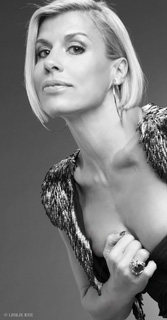COME JOIN ME AT THE SINGAPORE POLO CLUB
A message from Eri Machimoto, [Miss Universe Japan 2004 winner]
AVON PINK RIBBON EVENT
TOKYO OCTOBER 6TH, 2012
A message from Eri Machimoto,
[Miss Universe Japan 2004 winner]
ピンクリボンのチャリティーということで、ピンクの衣装を身に纏って。クローゼットの奥からQ shopのジャケットを引っ張り出したよ。私でも、意外にピンクのお洋服って持ってないのね…
お、肝心な事を書かなければ、、、乳ガンは早期発見で95%完治させる事のできる病気です。しかし、日本では乳ガンの定期検診を受けている女性は、僅か14%にとどまります。(お隣の韓国では30%)
自分は大丈夫だという根拠のない思い込みは捨て、定期検診へ。
日本では、1年間に約5万人の新たな乳ガン患者が発見され、その内、約1万人が毎年亡くなっています。1年間にですよ?想像できますか??
From Left:
Lui Watanabe, Natsuko Saito, Er Machimoto, me, Yukari Honna, Azumi Kurita
(all photos by Marven Payne)
この事実を、他人事では済まないという事を、女性一人一人が自覚する事がとても大切です。
何度も言うように、乳ガンは早期発見で治せる病気です。
今では医学も進歩し、ひと昔前のように、乳房をごっそりと取り除かなくても、薬で散らす事だってできます。但し、それも早期発見の場合です。
自分で触診する事も大切です。忙しくて月一度の定期検診を受けれない人は、週に一度、自分で鏡の前に立って触診を。
一番の乳ガンの特徴としては、しこりができる。ある人は石みたいに固かったと、ある人はグミみたいに柔らかかったと、しこりの感触には人それぞれ違いがあるようです。
ただ、何か乳房に異物を感じたら、直ぐに病院へ。
触診の時期ですが、月経から10日後がベストだと言われています。月経が終わって乳房の張りが引いた頃です。
触診時に、乳房を掴むようにされている方が多いみたいですが、それは間違った方法です。
優しく外から内に向かって、撫でるようにして触って下さい。
また、目に見える乳ガンの特徴としては、乳房の全体にオレンジの皮のようなブツブツとした斑点が表れます。これはかなり進行した状態なので、一刻も早く病院へ。
それからもう一つ、目に見える異変として、鏡の前で両手を挙げて万歳をした時に、乳房の形がいびつに歪んだり、引き吊ったりしていないか。
なんだか、書いている内にどんどん長くなってしまいましたが、一人でも多くの女性に知ってもらえたのなら幸いです。
A message from Doctor Natsuko Saito, Medical Doctor at St. Luke’s International Hospital Center For Preventive Medicine (& MUJ Finalist in 2005)
Ines Ligronがアンバサダーを務めるAVONのイベントで Inesと私は250人の女性達に 乳がんの早期発見に乳房の自己触診と年1回の乳がん検診を啓発すべく、熱くスピーチして参りました。 みなさんに『わかりやすくて、とてもためになった』と喜んでもらえて、とても嬉しかったです。
AVONの皆さん、Michael Allenありがとうございました。 準備にするにあたり、聖路加国際病院 乳腺外科 Reika In 尹 玲花先生、国立がん研究センター中央病院 山口智宏Tomohiro Yamaguchi先生(my lovely husband) 、本当にありがとうございました。 — at ベルサール六本木.
Dr. Natsuko Saito above wrote about Eri Machimoto’s message:
えりちゃん、とっても大事な乳がんの早期発見(自己触診、検診)の大切さを広めてくれてありがとう!!身体にも心にも傷を負って涙を流す人が減っていくといいな☆
My Message:
I am so lucky to have all these amazing young women as daughters in my life. Mina san otsukaresama deshita, hontoni aligato gozaimashita!
Japan’s nuclear disaster ~ Meet the Fukushima 50? No, you can’t
IT HAS taken the Japanese government more than 18 months to pay tribute to a group of brave men, once known as the “Fukushima 50”, who risked their lives to prevent meltdowns at the Fukushima Dai-ichi nuclear power plant from spiralling out of control. But when the prime minister, Yoshihiko Noda, belatedly offered official thanks to them on October 7th something strange was afoot: six of the eight men he addressed had their backs to the television cameras, refused to be photographed and did not introduce themselves by name, not even to Mr Noda (see the image below).

(Picture credit: AFP, top; The Economist, below)
The reason: officials from the government and from Tokyo Electric Power (Tepco) quietly admitted that the men wanted to keep their identities secret because they were scared of stigmatisation for being involved in the disaster, such as might lead to the bullying of their children and grandchildren. But Tepco is also muzzling them, presumably for fear that what they say will further discredit the now nationalised company. When I asked if I could at least hand my business card to them to see if they wanted to tell their side of the story, an irate Tepco spokesman answered bluntly: “Impossible.”
There are numerous ways that this incident reflects badly on both Tepco’s and the government’s handling of the situation. Firstly, there is the contrast between the frontline worker’s behaviour and the brazen hypocrisy of Tepco’s management after the accident. I remember Tepco’s then-chairman, Tsunehisa Katsumata (now thankfully retired), nonchalantly blaming everyone but himself when giving testimony to a Diet commission earlier this year.
Meanwhile, the men who worked loyally for him, risking their lives on behalf of his company, still hide their heads in shame.
The government, for its part, has done these men a huge disservice by not acting more quickly to differentiate their heroism from the craven self-interest of the company’s bosses. In the eyes of the public there ought to be no confusion between the two. In Chile, it was easy to see how the country made heroes of the 33 trapped mine workers in 2010, while making villains of their bosses. Nothing like that has happened in Japan. As one government official noted, if this were America, the “Fukushima 50” would have been invited to the Rose Garden for presidential recognition.
Yet even after Mr Noda’s visit, the men do not get the recognition they deserve. Kyodo, a news agency, relegates any mention of them to the bottom of a boring story about decontamination.
An English-language paper, the Japan Times, today at least tells part of their harrowing story, though it doesn’t mention the refusal of all but two of them to be identified. They did not depict themselves as heroes, as they recounted their experiences to Mr Noda. They mostly sounded plain scared. One said he thought “it was all over” after the tsunami of March 11th, 2011 knocked out all the power. Another told of how he sent his staff out into the dark, where they faced the danger of electrocution, to restore the power to a nuclear reactor on the verge of melting down. He was asked by his men whether he thought they would come back alive. They went on regardless.
But the headlines, ultimately, refer back to Mr Noda, not to the Fukushima 50. He gets more of the credit than they do, despite his wooden acknowledgement to the men, that “Thanks to your dedication, we have managed to preserve Japan.” This is one of the tragic flaws of modern Japan. The media attention is always focused on those in power, who typically do nothing to merit the recognition. The multitudes on the frontline, who put their heads down and do all the hard work are treated as faceless, nameless and ultimately forgotten.












